
Professor Anantanand Rambachan
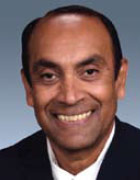 University administrator, teacher and scholar, Professor Anantanand Rambachan’s journey focused on paving the way for the co-existence of religious diversity. His contribution spans the fields of arts and letters as well as the public and civic sphere. University administrator, teacher and scholar, Professor Anantanand Rambachan’s journey focused on paving the way for the co-existence of religious diversity. His contribution spans the fields of arts and letters as well as the public and civic sphere.
After graduating from The UWI in 1972, Rambachan pursued graduate studies in India and later at Leeds University, United Kingdom where he obtained his PhD in 1984.
During the years 1983-1986, the BBC invited Rambachan – the first person from the Hindu tradition – to deliver a series of 20 lectures on Hinduism.
From 1987 to 1997, he delivered the annual lectures sponsored by the National Council of Indian Culture (NCIC).
He currently serves on the Theological Education Steering Committee, a team within the American Academy of Religion which meets the scholarly and professional needs of theological educators by creating programmes and services and enriching the work of theological educators.
In 2007, he was elected head of the religion Department of Saint Olaf College in Minnesota, USA.
Rambachan is the author of many religious books and journals and has produced multimedia works for educating teachers and students on Hinduism.
John Reginald Dumas
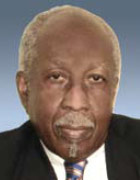 Humanitarian advocate, Reginald Dumas is a graduate of Cambridge University and was a Carnegie Endowment Fellow at the Institute Universitaire de Hautes Etudes Internationales in Geneva. Humanitarian advocate, Reginald Dumas is a graduate of Cambridge University and was a Carnegie Endowment Fellow at the Institute Universitaire de Hautes Etudes Internationales in Geneva.
For many years, Dumas has actively participated in multilateral negotiations dealing with specific concerns of his home country and the Caribbean Community.
From 1987 to 1988, he was Ambassador to the USA and Permanent Representative of Trinidad and Tobago to the Organization of American States. From 1985 to 1987, he served as High Commissioner to Barbados and the Eastern Caribbean.
Prior to his appointment as High Commissioner to Canada, from 1980 to 1984, he served as his country’s High Commissioner to India, with concurrent accreditation to Sri Lanka, Singapore, Indonesia and Japan. Between 1973 and 1976, he was Trinidad and Tobago’s High Commissioner to Ethiopia, with concurrent accreditation to Kenya, the United Republic of Tanzania, Uganda, and Zambia.
Serving as the Permanent Secretary to the Prime Minister, head of the Public Service from 1988 to 1990, and chair of the Public Service Reform Task Force, Dumas is also the author of two substantial books: “In the Service of the Public” (1995), which contains written or spoken material of his tenure as a senior public officer and “An encounter with Haiti: notes of a Special Advisor,” (2006).
Roy Cape
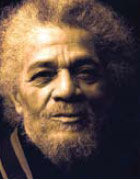 With a CV that boasts a musical career of 52 years, Roy Cape has taken calypso and soca music from local pan yards to stages in Canada, the USA, England, and parts of Europe, including the 2006 World Cup Soccer Finals in Germany. With a CV that boasts a musical career of 52 years, Roy Cape has taken calypso and soca music from local pan yards to stages in Canada, the USA, England, and parts of Europe, including the 2006 World Cup Soccer Finals in Germany.
Cape began his foray into music when he was just 11 years old and bought a tenor pan. Today, though recognized for his many musical talents, his renown lies mostly in his forte on the alto saxophone.
Cape’s career as a professional musician with local brass bands began in the 1960s when he joined Frankie Francis. From there he moved on to Clarence Curvan’s Orchestra, the Ron Berridge Orchestra and then to Sparrow’s Troubadors.
After playing American and Caribbean popular music in New York for some time during the 1970s, he returned to Trinidad and created the Roy Cape All Stars.
During his time as a musician, Cape’s talent has earned him a number of awards and recognitions, including Trinidad and Tobago’s Humming Bird Gold Medal in 2004, the Gayelle Pierrot Grenade award in 2005, and awards at the Plymouth Jazz Festival in Tobago in 2008 and at Dominica’s World Creole Music Festival in 2009.
Sir Fenton Ramsahoye
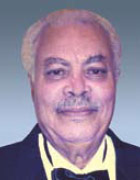 Born in Demerara, Guyana Sir Fenton Ramsahoye attended primary school on the West Coast of Demerara and then attended secondary school in Georgetown. Sir Fenton was elected a Member of Parliament of Guyana and served until 1973. He was Attorney General of Guyana from 1961 to 1964 and a member of the Board of Governors of the University of Guyana from 1962 to 1964. He was appointed Senior Counsel in Guyana in 1971 and from 1972 to 1975 he was Deputy Director of Legal Education for the Council of Legal Education in the West Indies and head of the Hugh Wooding Law School as a professor. Born in Demerara, Guyana Sir Fenton Ramsahoye attended primary school on the West Coast of Demerara and then attended secondary school in Georgetown. Sir Fenton was elected a Member of Parliament of Guyana and served until 1973. He was Attorney General of Guyana from 1961 to 1964 and a member of the Board of Governors of the University of Guyana from 1962 to 1964. He was appointed Senior Counsel in Guyana in 1971 and from 1972 to 1975 he was Deputy Director of Legal Education for the Council of Legal Education in the West Indies and head of the Hugh Wooding Law School as a professor.
Sir Fenton is a Queen’s Counsel and member of the Bars of England and Wales, Guyana, Trinidad and Tobago, Barbados, Jamaica, the Territories of the Eastern Caribbean including Montserrat, and the British Virgin Islands. In his book, “The Development of Land Law in British Guiana” (1966), he analyzed the growth of a complex system of rules governing the acquisition and transfer of rights in land. Sir Fenton was knighted in 2006 by Governor General Sir James Carlisle during a ceremony at Government House in Antigua.
Brian Charles Lara
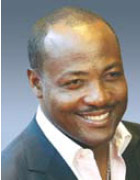 Brian Charles Lara was born on May 2, 1969, but his cricket career began when he was just six years old and was enrolled at the local Harvard Coaching Clinic. In 1990, he became Trinidad and Tobago’s youngest captain, and enjoyed some success there before making it to the West Indies team. Brian Charles Lara was born on May 2, 1969, but his cricket career began when he was just six years old and was enrolled at the local Harvard Coaching Clinic. In 1990, he became Trinidad and Tobago’s youngest captain, and enjoyed some success there before making it to the West Indies team.
1994 was a big year for Lara, earning him global acclaim as the Prince of Port of Spain. He broke the world record for highest Test innings with 375 at the Antigua Recreation Ground, a record he broke again with 400 in 2004.
He became one of just three cricketers to be awarded the BBC Overseas Sports Personality of the Year, he was named the Wisden Leading Cricketer in the World by Wisden Cricketers’ Almanack (for which he copped the award the following year as well), and he was presented with the Trinity Cross, the highest national award in Trinidad and Tobago.
In September 2004, now captain of the West Indies cricket team (a position he held three times), he was appointed T&T’s Ambassador for Sport.
Lara retired from international cricket in 2007. In 2008, he was awarded the Order of the Caribbean Community in recognition of his accomplishments in and contributions to the sport and the Caribbean.
In 2009, Lara was made an honorary member of the Order of Australia.
Kamaluddin Mohammed
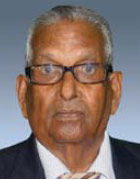 Kamaluddin Mohammed is well known for his outstanding political and government services, religious, culture and community work, for which he has received the Order of the Republic of Trinidad and Tobago. Kamaluddin Mohammed is well known for his outstanding political and government services, religious, culture and community work, for which he has received the Order of the Republic of Trinidad and Tobago.
Mohammed produced and presented the first Indian radio programme on Radio Trinidad and organized numerous Indian orchestras, recorded their songs and music and featured them on the radio.
He is a member of the Tackveeyatal Islamic Association, and was chairman of the Nur-e-Islam Mosque Board – the board responsible for the construction of the largest Masjid in the Western hemisphere.
At the age of 24 he contested a seat in St. Ann’s Ward for Local Government elections and won, defeating many seasoned candidates at the time. Mohammed holds the record for being the longest Government Minister in any Commonwealth country, covering thirty years from 1956 to 1986. As Minister of West Indian Affairs from 1967-68 he was one of the architects of the Caribbean Free Trade Association (CARIFTA).
In 1974, he was appointed Chairman of the United Nation’s World Health Assembly. He has been a strong advocate for the Caribbean Court of Justice and the Single Market and Economy.
Helen Bhagwansingh
 Philanthropist and entrepreneur, Helen Bhagwansingh’s contribution to the nation spans over fifty years. Her father was a pioneer in steel merchandising in Trinidad and Tobago in the fifties, and she began selling construction blocks. Philanthropist and entrepreneur, Helen Bhagwansingh’s contribution to the nation spans over fifty years. Her father was a pioneer in steel merchandising in Trinidad and Tobago in the fifties, and she began selling construction blocks.
After acquiring the business from her father, Bhagwansingh and her husband, Hubert, created their own empire that included steel manufacturing, hardware retailing, transportation, construction, real estate, light manufacturing and portfolio investments, and now employs over 1,200 persons.
She is well known for her philanthropic and charitable support to organizations like Habitat for Humanity, Lantana Heights of Gran Couva and the Bridge of Hope Children’s Services.
Her donation of TT$ 5 million to the St. Augustine Campus of The UWI led to the creation of DERPi ( Diabetes Education, Research and Prevention Institute), as the organizing trust and with it a substantial amount of research work in screening has already been accomplished.
Bhagwansingh’s economic and philanthropic activities earned her many awards including the nations’ highest award, the Order of the Republic of Trinidad and Tobago. Additionally, she was the first woman to be inducted into the Business Hall of Fame from the Trinidad and Tobago Chamber of Industry and Commerce.
Donald Jackie Hinkson
 Jackie Hinkson has led regional art development, devoting his life to the creation of a body of art that is distinctly Caribbean. Jackie Hinkson has led regional art development, devoting his life to the creation of a body of art that is distinctly Caribbean.
He studied painting at the Académie Julian in Paris, and earned a degree in fine arts, with distinction from the University of Alberta in Edmonton. After earning a Diploma of Education in 1970, he was invited to live and teach in Canada, an offer he declined in order to return to Trinidad to become the first art teacher in the long history of his old school, Queen’s Royal College.
Sixteen years later he resigned in order to devote himself to his art. The versatile artist has worked successfully in water colours; oil and acrylic paintings; pencil sketches; large-scale charcoal and crayon work; murals; and wooden sculpture.
Hinkson emerged as a mature creator at his second public exhibition in 1971. His first solo exhibition in 1974 classified him as perhaps the finest watercolorist in Trinidad history. He earned such wide respect for his drawings and paintings of our older, often humble, buildings that the government commissioned him in 1982 to execute a hundred of such drawings and watercolours. |





